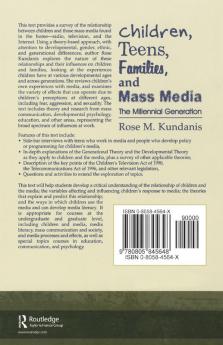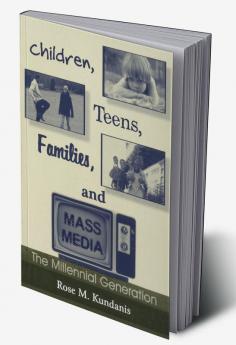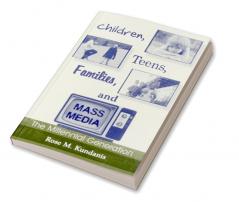English
Paperback
₹3779
₹5450
30.66% OFF
(All inclusive*)
Delivery Options
Please enter pincode to check delivery time.
*COD & Shipping Charges may apply on certain items.
Review final details at checkout.
Looking to place a bulk order? SUBMIT DETAILS
About The Book
Description
Author
Shoutouts
<p>This text provides a survey of the relationship between children and those mass media found in the home--radio television and the Internet. Using a theory-based approach with attention to developmental gender ethnic and generational differences author Rose M. Kundanis explores the nature of these relationships and their influences on children and families looking at the experiences children have at various developmental ages and across generations. She reviews children's own experiences with media and examines the variety of effects that can operate due to children's perceptions at different ages including fear aggression and sexuality. The text includes theory and research from mass communication developmental psychology education and other areas representing the broad spectrum of influences at work. <br><br> Features of this text include: <br> *side-bar interviews with teens who work in media and people who develop policy or programming for children's media; <br> *in-depth explanations of the Generational Theory and the Developmental Theory as they apply to children and the media plus a survey of other applicable theories; <br> *description of the key points of the Children's Television Act of 1990 the Telecommunications Act of 1996 and other relevant legislation; and <br> *questions and activities to extend the exploration of topics. <br><br> This text will help students develop a critical understanding of the relationship of children and the media; the variables affecting and influencing children's response to media; the theories that explain and predict this relationship; and the ways in which children use the media and can develop media literacy. It is appropriate for courses at the advanced undergraduate and graduate level including children and media media literacy mass communication and society and media processes and effects as well as special topics courses in education communication and psychology.</p>
Delivery Options
Please enter pincode to check delivery time.
*COD & Shipping Charges may apply on certain items.
Review final details at checkout.
Details
ISBN 13
9780805845648
Publication Date
-01-06-2003
Pages
-198
Weight
-328 grams
Dimensions
-152x229x10.85 mm

























